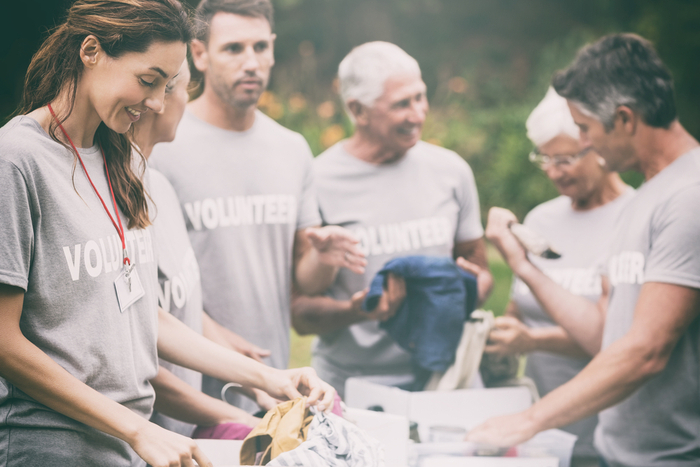A year ago, volunteering looked a lot different than it does now in 2020. While the COVID-19 health crisis keeps a lot of volunteers safely at home, I still remember the bustling of volunteers at springtime events only a year ago. While I’m sure we will all be back to a new normal eventually, I realized there was value in my nostalgic reflection.
“What excites volunteers to come back, year after year?” I wondered. More specifically, I thought, “What will excite volunteers to return next spring, after we get through all of this?”
First and foremost, I’m sure it will be community spirit that brings volunteers back through the doors of our local nonprofits, festivals, and marathons. You know what they say – distance makes the heart grow fonder. We’re all eager to reunite and (re)start contributing to the missions that matter most to us.
Beyond that, I’m sure good ol’ incentives will be another motivator to returning volunteers, especially in the years to follow. From my reflections of last year, I identified what really made incentives valuable to our volunteers.
So, jump in my time machine and travel back with me just one short year to identify incentives that mattered.
The sun was shining and the air was light with the promise of warmer weather around the corner. Volunteers were bustling around from table to table preparing for the local fun run, ‘Spring has Sprung’. Tented tables for check-in and distributing bibs for the runners accompanied by merchandise tables and food trucks, lined the perimeter of a parking lot.
I found one volunteer, Steve McMillian, while he filled orange water coolers to be put out throughout the 5K and 10K course. He has been volunteering for SHS, as he affectionately called it, for 3 years. “I moved here about 5 years ago and my buddy always seemed to have this new stuff in the spring. Finally, I asked him where he was getting it from, and he told me about SHS and their awesome swag bag,” McMillian said. His friend would have a new tee shirt, sunglasses, bottle opener, even a phone case one year. “The big thing is the logo is always really cool and different. It really feels like they spend time thinking about what is actually good stuff to get.”
Plenty of other events use swag to incentivize volunteers to sign up for a shift or two, but seems that SHS has it down to a science. When I asked other volunteers what their favorite piece of swag was this year, I got a few different answers, but the top three favorites were tee-shirts, pens, and free meal during your shift.
I was surprised something as simple as a pen made it on the list. Second time volunteer, Macy Roads, summed it up, “getting a good pen that writes well and lasts a long time – that’s hard to come by. I wouldn’t say it’s the only reason I am back again this year, but it didn’t hurt.”
Once the race started I caught up with Susan Hampton, the head volunteer coordinator for SHS, to find out what she had to say about the legendary “swag bag” of Spring has Sprung. She wasn’t sure whose idea it was originally, but now they are rolling with it. “It has become sort of a tradition,” she said. She works with the other committee members of the team to come up with fresh new ideas every year, but a few of the things remain that same. Remember those pens?
“A revelation we had this year was that not everything needed our logo on it.” She referenced the phone case from a few years ago. She still had her phone in it, actually. One of their more popular ideas, “but we plan on revamping and making it trendy, instead of just the same logo as the tee-shirt like this one.”
Other events often get products from local or national vendors with that company’s logo on it, but SHS has turned the swag into advertising for their event to encourage more volunteers by providing desirable items. “If you have cool looking sunglasses people are going to ask where you got them and open it up to a conversation about the event instead of just the visual,” Hampton said.
While some events also include free entry to be a volunteer, SHS does not. Hampton said the committee has considered, but many of the volunteers are needed during the event, “it would really shrink the shifts the volunteers running would be able to work.” The race also raises money for a good cause, “I would hate to take away any money we raise for the Youth Shelter.”
So, you can get more than just a bag of incentives in exchange for spending your weekend helping out at the Spring has Sprung race, you can help make a difference too.
Jumping out of my time machine and moving forward again, we all might benefit from reconsidering our volunteer incentives. Consider what volunteers will want (ex: pens that write well), what volunteers will need (ex: a free meal to keep their energy up), and what will matter to them (ex: a small volunteer registration fee that will go straight to a good cause).
Looking forward to volunteer days we’ll have together again down the road. Stay well.





